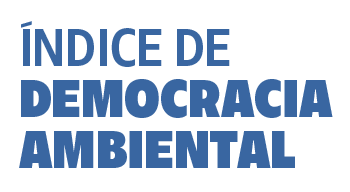Escazú Agreement: what it is, why it matters and why Brazil hasn't ratified it yet
Aimed at promoting the rights of access to information, participation and justice in environmental matters, the Escazú Agreement is the first environmental treaty in Latin America and the Caribbean, as well as being the first in the world with binding obligations dedicated to the protection of environmental defenders.
So far, 18 countries have ratified the agreement: Antigua and Barbuda, Argentina, Bahamas, Belize, Bolivia, Colombia, Dominica, Chile, Ecuador, Grenada, Guyana, Mexico, Nicaragua, Panama, Saint Kitts and Nevis, Saint Lucia, Saint Vincent and the Grenadines and Uruguay. Brazil is not yet on the list.
Brazil needs to ratify the Escazú Agreement
In 2023, five years after it was signed, Brazil sent the treaty to Congress for ratification - which has still not happened. Thus, the Escazú Agreement still has no legal force in the country.
As the Human Rights Watch report (2024) points out, the ratification of Escazú is essential to combat violence in Brazil, the second country that kills the most environmental defenders, since it establishes concrete obligations, such as requiring specific measures to prevent threats and attacks, guarantee reporting mechanisms, investigate rights violations and punish those responsible for these crimes.
One of the main obstacles to the ratification of the Escazú Agreement is the argument that it could interfere with national sovereignty. The agreement does not impose foreign interference on domestic decisions, but obliges states to guarantee transparency, public participation and protection for environmental defenders - principles already provided for in Brazilian legislation and in human rights treaties to which the country is a signatory. As the report Dialogues: Sovereignty and Climate (2025) makes clear, the real risk to sovereignty lies in the advance of organized environmental crime, which takes advantage of the absence of the state and the opacity of data to act with impunity. By strengthening social control mechanisms and encouraging the expansion of institutional presence in vulnerable territories, Escazú strengthens - not weakens - Brazilian sovereignty.
The Escazú Agreement is also essential for preventing and combating corruption in environmental matters, such as in cases where such practices enable environmental crimes or are associated with setbacks in environmental governance.
Ratifying Escazú is therefore saying that Brazil chooses to protect its territories based on the guarantee of the rule of rights.
What is the relationship between the IDA and the Escazú Agreement?
The Environmental Democracy Index (IDA) seeks to measure the existence and implementation of the four pillars set out in the agreement. Its results show that Brazil is still far from guaranteeing these rights.
In the area of access to environmental information, for example, no state in the Legal Amazon has provided complete data on land conflicts, quilombola territories and land regularization.
In the dimension of protecting environmental defenders, the scenario is even more alarming: six of the nine Amazonian states scored "very poorly", due to the absence of programs and other protection practices. The overall average of the states for this dimension was 11.8 points (on a scale of 0 to 100).
This data shows that Brazil still fails to guarantee the basics: that people can be informed, that they can participate in relevant decisions and public spaces, and that they have guarantees against violence for doing so.
The Escazú Agreement promotes environmental democracy
Escazú is an opportunity to get environmental democracy off the ground. Ratifying it means transforming formal norms into concrete policies: more accessible public environmental data, more listening to communities and more security for those on the front line of environmental defense.
The IDA highlights the bottlenecks, but also points to possible ways forward. And among them, the Escazú Agreement emerges as one of the main references for turning rights into practice. It's up to Brazilian society to put pressure on Congress to ratify this agreement, since environmental democracy is built on data, voice and protection.






